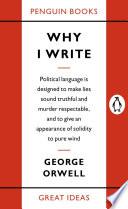
Source: Keep the Aspidistra Flying (1936), Ch. 1
Source: Why I Write
Context: Money, once again; all is money. All human relationships must be purchased with money. If you have no money, men won't care for you, women won't love you; won't, that is, care for you or love you the last little bit that matters. And how right they are, after all! For, moneyless, you are unlovable. Though I speak with the tongues of men and of angels. But then, if I haven't money, I DON'T speak with the tongues of men and of angels.
